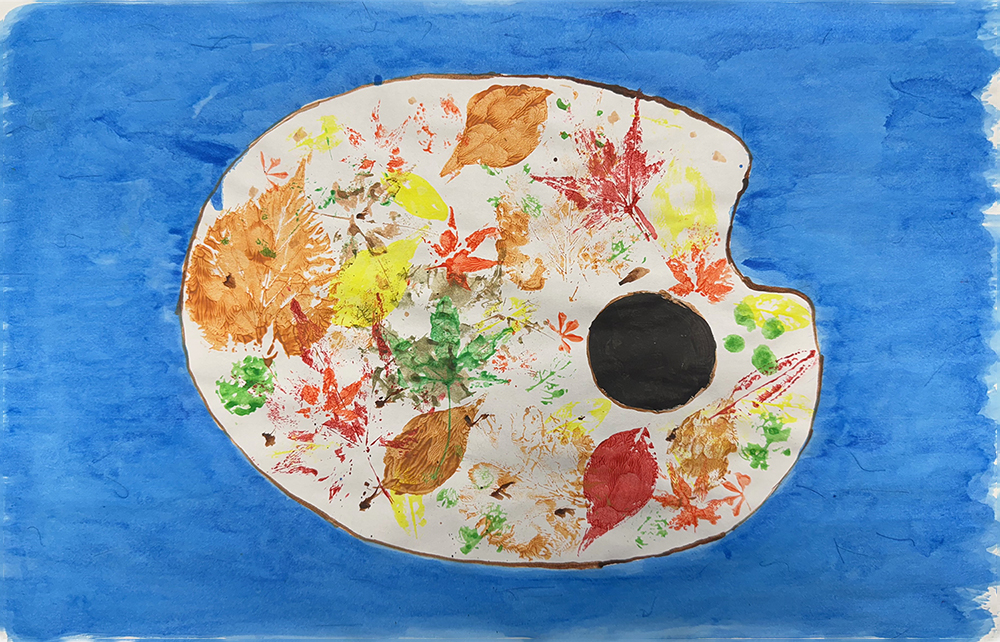
Title of the Artwork: The attribute of limitation
Watercolor
Author: May TANG (CCST Vancouver Master of Theological Studies student)
This painting features large patches of blue, inspired by a story I came across online shared by an art blogger explaining how to appreciate Yves Klein's works. The story is about a robot that, after multiple software upgrades, became a painter. However, no matter how hard it tried, the robot could only paint entire canvases in blue. Eventually, it started searching for the reason and, after much recollection and thought, remembered that it was initially not a painter but a robot designed to clean swimming pools. The blue of the pools had left an indelible mark on it. Thus, blue represents a deeper meaning: to search for one’s origins and rediscover one’s true self.
In the center of the painting is a palette with the shape of leaves. Vancouver's autumn colors are a masterpiece painted by God, utterly beautiful. I collected some fallen leaves, pressed them in a book to dry, painted the back of each, and stamped them onto the palette, wanting to incorporate real leaves into the artwork. This palette represents the garden created by God, filled with all kinds of plants given to Adam and Eve. God instructed them, "You are free to eat from any tree in the garden; but you must not eat from the tree in the middle of the garden, or you will surely die." The black-painted hole in the middle of the palette symbolizes that tree, creating a visual tension with the colorful leaves around it. Why did God create that tree? If He hadn’t, humanity wouldn’t have sinned, been expelled from Eden, or lived in sin generation after generation. He wouldn’t have had to sacrifice His Son on the cross for our redemption. Was God self-directing His own drama? Although God created humanity in His image and likeness, the attributes of humans and God are not the same. God is infinite and omnipotent, but human abilities are limited. From the beginning of creation, God defined human attributes: humans cannot do everything; they have boundaries—for example, they were forbidden to eat the fruit from that tree.
Today, human knowledge and technology have undergone countless upgrades, achieving remarkable progress—airplanes, smartphones, the internet, and AI technology. Yet, these advancements have also led to the creation of aircraft carriers, missiles, and nuclear weapons, bringing disaster and the potential for extinction to humanity. Has technology become another Tower of Babel for mankind? In an era of rapid technological advancement, humanity must reflect on and remember its original nature and the attributes it was created with. Human attributes are finite; not everything is permissible or achievable.